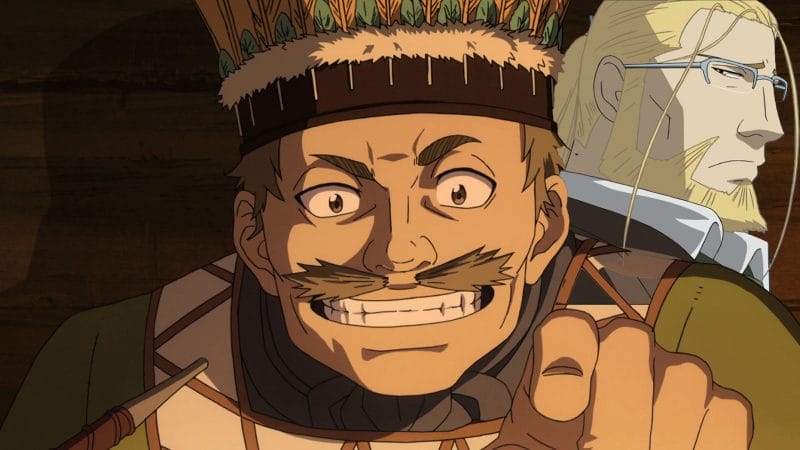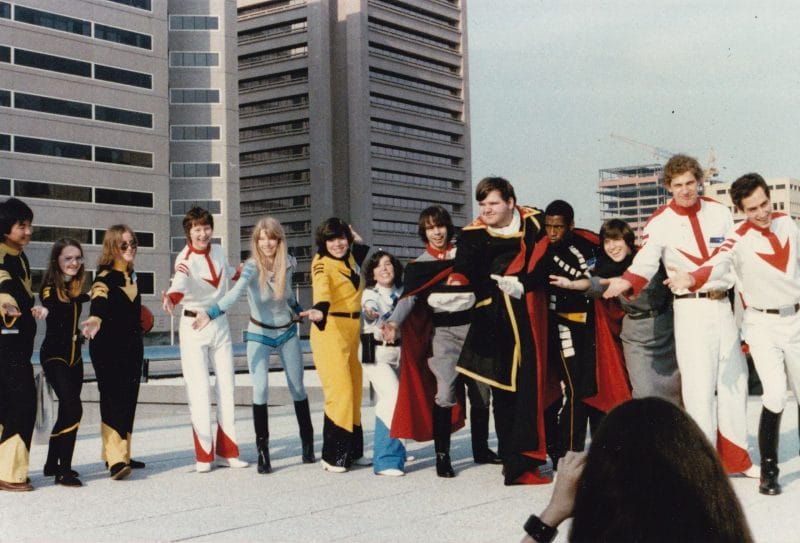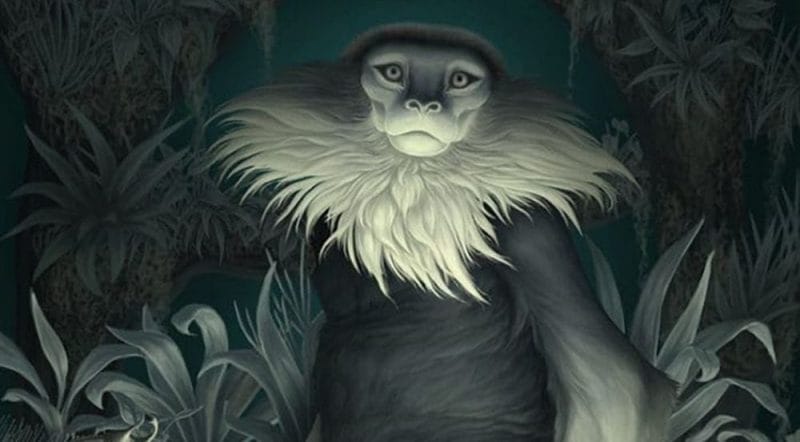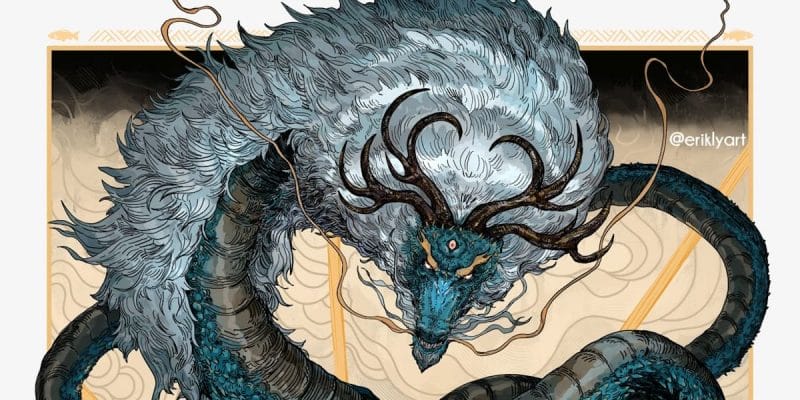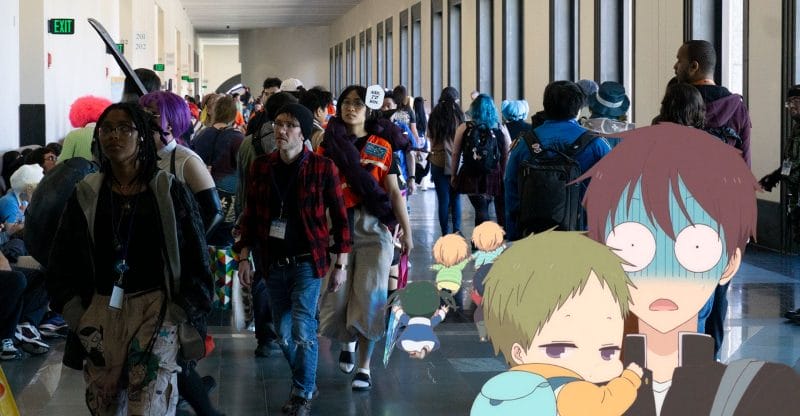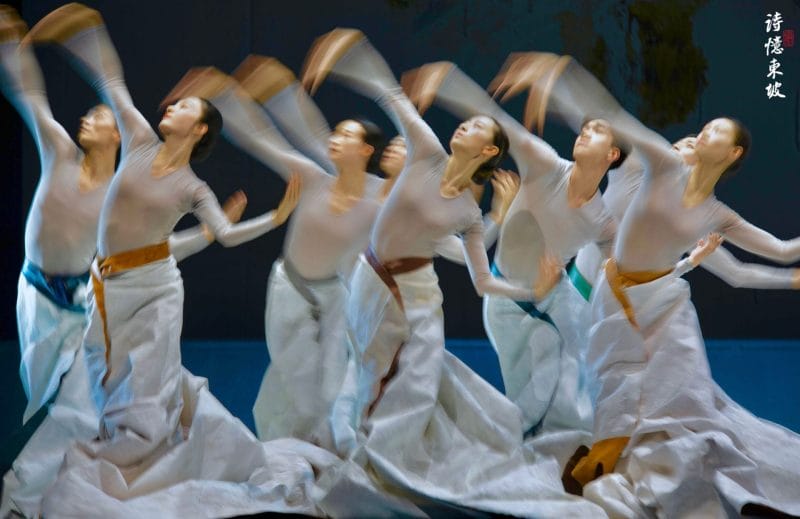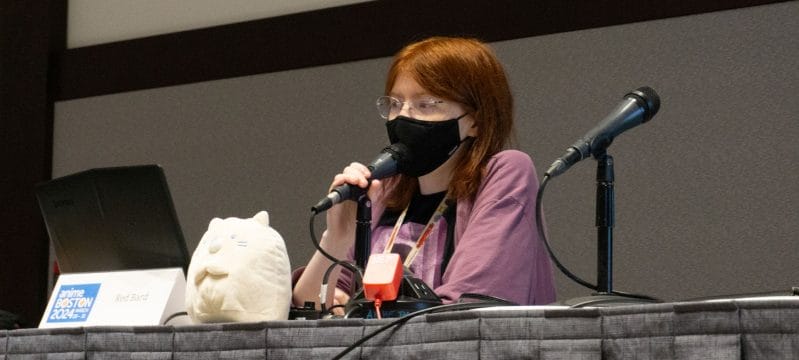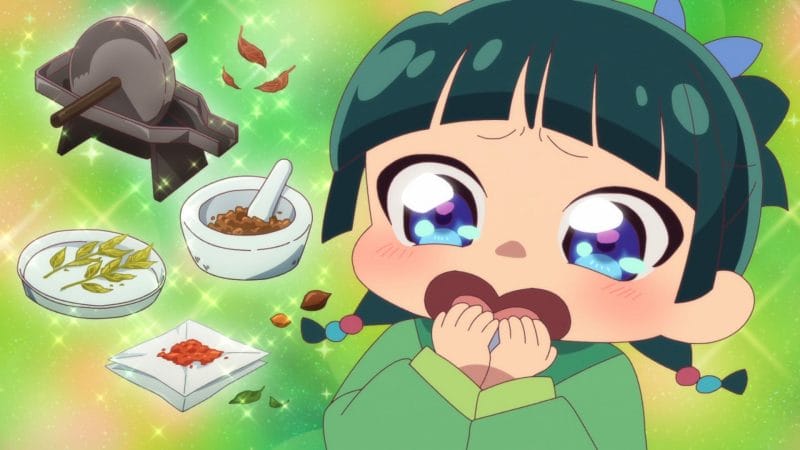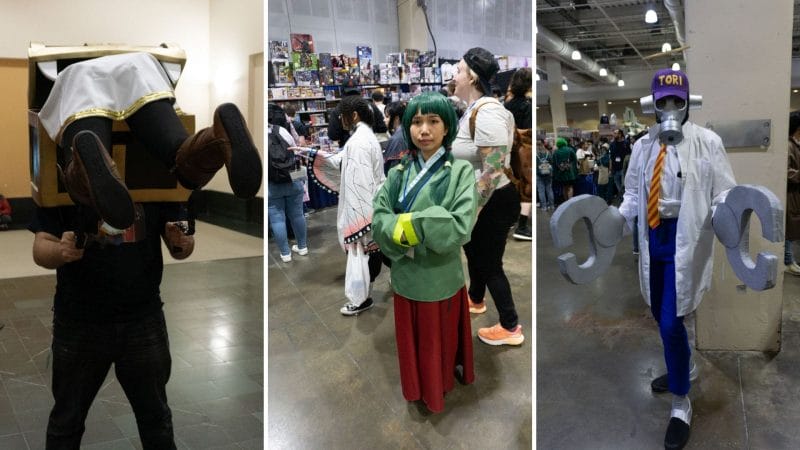Interview With JAM Project
Location: Anime Boston 2014
Interview Date: 3/21/2014
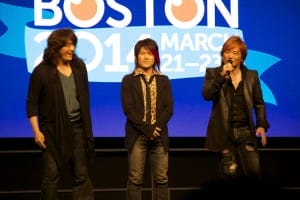 Japan Animation-song Makers Project came onto the scene at the turn of the century. Conceived by Ichirou Mizuki, a household name in 1970s anime-songs, JAM Project began with Mizuki himself and four other members, all performing vocals: Hironobu “Mr. DBZ” Kageyama, singer-actor Rica Matsumoto, Masaaki Endoh, and Eizo Sakamoto. In 2002, Mizuki began reducing his involvement, and the band picked up Hiroshi Kitadani: known prior by anime fans for the One Piece theme, “We Are!” In 2003, the band lost Sakamoto (he called it “graduation”), and picked up Masami Okui and Yoshiki Fukuyama. Before joining JAM, Okui released several maxi-singles, including performances with Megumi Hayashibara for Slayers. Her solo career remains healthy even now. Fukuyama is known as the musician behind Macross 7’s Basara Nekki and the “Fire Bomber” band. He has continued releasing a steady stream of solo work while also part of JAM. Finally, Matsumoto left the band in 2008 to work on her solo career, leaving the five members who performed at Anime Boston 2014.
Japan Animation-song Makers Project came onto the scene at the turn of the century. Conceived by Ichirou Mizuki, a household name in 1970s anime-songs, JAM Project began with Mizuki himself and four other members, all performing vocals: Hironobu “Mr. DBZ” Kageyama, singer-actor Rica Matsumoto, Masaaki Endoh, and Eizo Sakamoto. In 2002, Mizuki began reducing his involvement, and the band picked up Hiroshi Kitadani: known prior by anime fans for the One Piece theme, “We Are!” In 2003, the band lost Sakamoto (he called it “graduation”), and picked up Masami Okui and Yoshiki Fukuyama. Before joining JAM, Okui released several maxi-singles, including performances with Megumi Hayashibara for Slayers. Her solo career remains healthy even now. Fukuyama is known as the musician behind Macross 7’s Basara Nekki and the “Fire Bomber” band. He has continued releasing a steady stream of solo work while also part of JAM. Finally, Matsumoto left the band in 2008 to work on her solo career, leaving the five members who performed at Anime Boston 2014.
JAM Project sees it as their mission to keep the genre of anime songs alive, and the majority of their work is for anime. They have performed theme songs for a number of high-profile titles and franchises such as éX-Driver, Galaxy Angel, Super Robot Wars, Getter Robo, Soul Taker, Sgt. Frog, Scrapped Princess, and Yu-Gi-Oh — to name a few.
The interview was conducted like a press conference, with each outlet present asking questions in round-robin fashion. In addition to Anime Herald, the outlets present were: Japanator, Crunchyroll, Boston Bastard Brigade (an anime podcast), Anime Diet, My J-House Rocks Promotions, and MC Radio (Latin-America radio station). Each outlet was able to ask only a couple of questions, so we’re including the complete transcript of questions asked.
Editor’s Note: The interview is edited for clarity.
 Japanator: You have been to many places in the world, and perform many live shows. Which country has the most passionate fans?
Japanator: You have been to many places in the world, and perform many live shows. Which country has the most passionate fans?
Kageyama: It’s hard to choose a single country, because people from different places express their passion in different ways. For example, in Taiwan, people actually sing along with us, in Japanese, from start to finish. In Latin America, on the other hand, even during ballads, the fans are cheering on and clapping as if it’s a soccer game. And in Mexico, women’s underwear came flying through the crowd, up onto the stage.
Kitadani: One thing that’s surprising is that no matter where we are, many different objects come flying at us from the crowd. During one performance in Brazil, there were headphones and T-shirts thrown at us.
Fukuyama: At our concert just last night, we had a pineapple show up on stage.
Crunchyroll: Which other countries and/or locations would you like to perform at?
Kageyama: Lots. Last spring I had the opportunity to go to Egypt, solo. It was my first time in Africa, and it was a small event, but everyone was so passionate, and they were like, “Oh please, we’d love to have the entire JAM project perform for us.” I was excited about it too, but as you know, there has been a lot of political unrest, and the dream came and went. I’m hoping that once the situation stabilizes, we can make it happen.
Anime Diet: Does the number of times you perform in America detract from other opportunities to perform abroad?
Kageyama: We don’t see it as an impediment at all. America is a huge country and there are conventions all the time, so we love coming back to America and playing in different places.
Boston Bastard Brigade: How different is your songwriting process when writing for JAM project vs your solo works?
Kageyama: We’re in the business of anime song production, and the first and main focus is the work we’re producing the song for, and whenever we’re asked to work on something, we have a meeting with the producers to set the tone for the thing we’re producing a song or songs for, and I think in that sense it doesn’t matter whether we’re producing the song solo or as a group — we always strive to produce the best work that fits the image the director or producer have for the title.
My J-House Rocks Promotions: When someone first listens to JAM project, which song do you think best expresses your sound — the song that shouts, “Yes, this is us. This is JAM project!”?
Fukuyama: You know, guys, we’ve been doing this for 14 years, and we’ve got tons of songs out there. It’s really hard to narrow it down to one particular song.
Kageyama: One thing I feel is very unique to JAM project, in addition to combining five lead voices, is that we have a lot of songs involving a call and response, with the audience singing a line back to us on cue. I think that kind of audience interaction is what makes us enjoyable. In that sense, the Super Robot Wars songs, and especially “Skill,” would be a representative song for us.
Anime Herald: Individually, you are the voices of several decades of work. Okui-san’s work appears in several titles like Utena and Slayers, Kageyama-san did everything from Dragon Ball to Shinesman, and so on. What was that moment where you all decided you wanted to form a group and work together?
Kageyama: So, we, actually, JAM project, was started back in 2000, and this was the period where anime opening and ending songs were not made specifically for anime. It started becoming popular to take established j-pop artists who were popular at the time, and ask them for the rights to use their hit song in an anime. There were those of us who already had careers making anime songs, and we started to see that that genre would start shrinking and possibly disappear, and we couldn’t let that happen, so we decided to join forces and create a kind of powerhouse that makes songs for anime, and ensure that the genre would continue to flourish.
MC Radio: Any plans for a reunion tour with pre-2010 members?
Kageyama: We’re at year 14 of JAM project, so there’s nothing set in stone yet, but it would be nice for an anniversary (15 or 20) to get together with [Ichirou] Mizuki-san, [Eizo] Sakamoto-san, and [Rica] Matsumoto-san — that would be great. We’d love to.
 Japanator: Can you share the story of how the Animelo Summer Live concerts happened?
Japanator: Can you share the story of how the Animelo Summer Live concerts happened?
Okui: In 2005 there really was no similar type of event, where those of use who work on anime songs could gather together and share our music with the fans, so we wanted to start one. We also wanted to make an event where record labels and record production companies could get together, as well as one enjoyed by the fans. As Kageyama says, even though anime songs are made for Japanese animation, they are loved by and enjoyed by fans worldwide, and we thought this would be a great event to connect people not only within Japan, but those from different areas in the world — to be a bridge between cultures.
Crunchyroll: Is there anything that you’ve found interesting while in Boston?
Kageyama: We were actually surprised about the number of people who came [to Anime Boston] this weekend. We were impressed by the sheer number of cosplayers we ran into, even while out to eat [Note: the Hynes Convention Center is connected with a shopping mall]. Another thing that impressed me about the cosplayers here is that they expressed their personal preference, and it didn’t necessarily have anything to do with what’s popular. I have a friend in Spain who emails me a lot, and he’d be like, “at this year’s event, it was all Attack on Titan cosplayers” and other friends of mine in Europe say the same. Here, there is more diversity in the shows and characters represented.
Anime Diet: How would you feel if they made an anime about you as a group (as they did with AKB48), and if not you, whom would you cast as a seiyuu for your anime role, and if such a project exists, would you sing your own opening and ending?
(round of laughs)
Kageyama: I’m not aware of any such project in the works.
Fukuyama: I would say myself, but if not, I would want Taishirou Hirokawa to do my voice.
Kitadani: I would relish the challenge of doing the role myself, but otherwise it’d be [Tomokazu] Sugita-san or Mamoru Miyano-san.
Okui: Nana Mizuki-chan, although I’m sure it would never happen.
Kageyama: Myself
Endoh: My dream seiyuu for the role would be Hironobu Kageyama, but I’d still like Nana Mizuki-chan to sing the opening song, I think.
Boston Bastard Brigade: This is a question for Yoshiki Fukuyama: You performed one of my all-time favorite ending themes for anime, “Work Guy” for Kamen no Maid Guy. Working alongside [lyricist] Hitomi Mieno, how did you both capture the spirit of the series, and in particular, Kogurashi, while at the same time creating a song that stands on its own as an amazing rock song?
Fukuyama: Well, knowing what type of anime it was, we wanted to jam in as many cuss words as we could. In terms of the song itself, I came up with a couple different renditions, but I wasn’t satisfied with them, so during rehearsal for a concert I asked fellow band members, “Hey, can you help me with this?†and we collaborated in producing the song. I did the A-line [the lead guitar part], the bassist came up with the chorus, and the keyboardist, the interlude and solo, and that’s how we ended up with an anime song that wasn’t just an anime song.
Boston Bastard Brigade: I want you to know that it almost became the theme song for my podcast, too, but I was outvoted by the other members.
Fukuyama: That’s really sad, man, but I’m glad you told me.
My J-House Rocks Promotions: I have a question for Endoh-san: recently you worked on the anime music production “-homme-“, and you worked with Sakito of [visual kei band] Nightmare to produce the Gao Gai Gar opening theme for the album. What made you choose that song and to work with Sakito?
Endoh: It wasn’t a conscious choice to work with him, or something I went out of my way to do. It’s just that: Visual Kei is not just popular in Japan, but worldwide, and the worldwide attention rekindles interest in Japan, in turn. I had never met Sakito-san before this, but we both hail from Miyagi Prefecture, and I think it may have had to do with why we were brought together, but of course I am from the opposite end of the musical spectrum from visual rock, and yet it was a great experience, because visual rock fans love anime songs, and it’s not a typical experience for me to be able to work with people from that genre, and to show the fans that music isn’t restricted to any particular genre.
Anime Herald: Over your fourteen years you mentioned you’ve had some pretty interesting things appear on stage, including the pineapple from last night, so I have to ask: what is the most interesting thing to happen to you all while you’ve been touring together?
Kageyama: There’s this one incident that happened in Japan during an encore: Mr. Fukuyama over there, he came back out on stage so enthusiastically that he ran into a table on the other side of the stage, and broke a bone.
Fukuyama: The interesting part of it is right before we performed “Skill”, and it was the last gig of that particular tour, and Mr. Kageyama’s speech went on for ages. Initially the adrenaline from the concert kept me going, but then I started feeling pain, then more and more pain, and before we performed the piece I said, “can you call me an ambulance?” and everyone was like, “oh, please, Mr. Fukuyamaâ€, because they thought I was joking! Because you know, I kid around, but it was no joke. After the performance I actually did go to the hospital in an ambulance, but also, that performance wound up in karaoke, and if you check it out, you can see me with a very serious expression on my face.
(laughter)
… I can’t fly.
MC Radio: Given your popularity in South America, do you currently have any plans to perform there?
Kageyama: We actually received offers to perform in Brazil this year, but unfortunately the dates overlapped with a festival our record company [Lantis] is hosting in Japan, and we couldn’t commit. I’m pretty sure we’ll be back to Latin America someday.
Japanator: How do you balance your time between JAM project and your solo work?
Kageyama: It’s not often we get too many offers at the same time, so spacing the work out between JAM and our solo projects isn’t problematic.
Okui: I get a lot of simultaneous offers for work, and the projects often overlap. Perhaps because I’m a woman, and the types of songs I create are of a slightly different mood and flavor than the guys next to me, and even the songs I write for JAM project tend to be the ballads and medium pace songs, rather than the rip roaring testosterone-driven rock songs. The benefit is: If I get stuck while writing solo songs, I can switch to working on JAM project songs for a nice change of pace, and vice versa.
Crunchyroll: Do you have a trick when switching between working on your usual upbeat songs and the dark songs (e.g. Garo)?
Kageyama: For Garo specifically, the creator is a sort of dark person, and the song reflected his vision for the work.
Anime Diet: What are your thoughts about the mega idol groups prevalent in J-pop (e.g. Morning Musume, AKB48)?
Kitadani: Hey, I like the stuff!
Endo: We recently had the opportunity in Japan, at anime-song events and the like, where we performed live with idol singers / groups, and I realized that we share common ground in the fact that our music is loved worldwide.
Boston Bastard Brigade: This is a question I ask all musicians I get a chance to interview, and it’s a tough question, but they always manage to get through it: if you were stuck on a desert island, which 3 albums (other than your own music) would you choose to keep yourself sane until you were rescued?
(surprise and laughter)
Fukuyama: 3? Just 3? I’ll say: Beatles — Rubber Soul, Queen II, and the third… the third… Simon & Garfunkel — Bridge over Troubled Waters. …No, Beach Boys — Pet Sounds!
Okui: I know it’s strange, but I actually listen to a lot of my own music, both solo and JAM, and it’s because I tend to be a little hard on myself, and push myself to write songs and inspire myself. Along those lines, when I’m in a down mood I tend to listen to my/our work to get myself in the right frame of mind and to stop feeling blue. So I’d really like to include one of my own albums, and probably a classical music album, and then the third one would probably be one of these other guys’ solo albums.
Endo: My turn…what will I choose?
I would prefer to bring my other band members’ albums, but you said three and there are four of them, so they’ll be fighting amongst themselves if I leave one of them out, so I’ll have to come up with something else. Of course I love Aerosmith, so their best-of, and then Nickelback and The Eagles, also best-of.
Kageyama: I was thinking about which albums really inspired me, and what I’ve been listening to since I was a kid, and the first would be Bad Company’s first album, and then Rod Stewart — in particular, Atlantic Crossing — I almost wore the grooves off the LP. And I listen to Adele a lot while trying to relax at home, so I would probably choose one of her albums.
Kitadani: My first is Kiss — best of. And since it is a deserted island, and it would be kind of cool to go to a deserted island: AKB48, best of. And lastly, because everyone else said they don’t want it: my solo album, Real.
Interpreter: Any last words for your fans?
Endo: I am happy to learn how many of you all enjoy anime songs, and so I as well as my fellow band members would like to keep inspiring you by making anime songs, so please continue to support us. Thank you.
Kageyama: Coming to Anime Boston was a blast. We had lots of fun, and I was surprised at how upbeat and excited the fans and staff are here, and everyone was so kind to us. It made me reflect on how anime culture can exist as two nations and two peoples, and it’s a wonderful thing. As part of JAM project I hope we can continue bridging cultures and creating one happy world.
Okui: this was my first time at Anime Boston and as Kageyama-san said, we had a great time. Please contact us and let us know if you want us in your city — we’d love to visit. Also there are many other talented performers in Japan who I’m sure would love to travel to America and other places to perform, so please reach out to us and learn more about us.
Kitadani: We all love anime, and I’m proud to see anime and anime songs going strong. There’s so much out there, now. I look forward to seeing you all again, and watching how the industry continues to shift and grow.
Fukuyama: When we started performing abroad, about 10 years ago, I had no idea there were people on the other side of the globe who knew our songs and were singing our songs, and now I’ve come to understand that the word “border” is just a word, and they don’t really exist. Going forward, I hope to be part of this continued cultural exchange in a border-free world.




